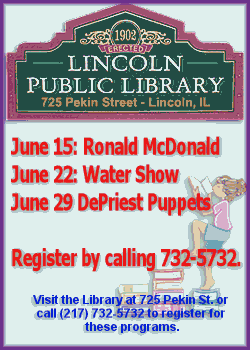 Review by Review by
Richard SumrallAccording to Forbes magazine, NASCAR is
"the fastest growing, best-run sports business in America … NASCAR's recent
explosion in popularity is unprecedented." It's easy to understand why this
sport has become second only to the NFL in terms of popularity and
television ratings -- fast-paced action combined with the danger of these
extraordinary machines traveling at high rates of speed. Add the
heart-stopping competition involving the larger-than-life personalities of
the sport and you have NASCAR -- the National Association for Stock Car Auto
Racing. The new book "A Week in the Life of NASCAR" describes the excitement
of this sport in detail and gives fans a revealing, behind-the-scenes look
at racing. The book also showcases two of the most popular events on the
NASCAR circuit -- the races at Talladega, Ala., and Darlington, S.C.
"Prerace, Race, and Postrace"
According to crew chief Ryan Pemberton, "Talladega is one of those places
that will make you religious pretty quick." At 2.66 miles it's the longest
track in NASCAR and includes a 33-degree corner bank.
Just before a race at Talladega, there are final adjustments to the cars
and engines as well as the final inspections by NASCAR officials. Once the
race begins, drivers jockey back and forth in a frantic high-speed chess
match while the crew teams work their magic during the pit stops.

After the event the teams move on to the next race -- except for the
winner. In the example cited in the book, the winner of the Talladega race,
Jeff Gordon, remains behind while NASCAR officials subject his car to the
customary inspection after the race. According to the rules of the sport,
officials must "template and measure the car, then disassemble the engine
and suspension." After passing the final inspection, Gordon is officially
declared the winner of the race and makes his way to the next stop on the
circuit: Darlington.
"The Life -- A Peek Behind the Curtain"
Many fans only see the public side of the sport -- the race, the
personalities and the cars. The book also documents the real story that
takes place long before the race.
[to top of second column] |

It all begins where the racing car is built -- the shop. These
"mini factories" can cover as much as 80,000 square feet and include
administrative facilities, museums and retail stores.
Keeping a car running during a race is the responsibility of the
pit crew. Pit crew practice sessions are essential to a driver's
success. In NASCAR's competitive environment the standard 15-second
pit stop is no longer acceptable; crews must "execute four-tire,
full gas and adjustment stops in under 13 seconds."
One of the most important developmental tests performed on a car
takes place at the AeroDyn wind tunnel at Mooresville, N.C. This
full-scale closed jet facility "recreates track conditions with
rollers in the floor … and speed-controlled fans that can draw wind
over a vehicle at more than 125 miles per hour."
"Q & A -- Chatting With the People Who Make NASCAR Go"
One of the book's most entertaining features is the
question-and-answer sessions with some of the sport's biggest stars.
Racing legends such as Jimmie Johnson, Jeff Gordon, Terry Labonte,
Kyle Busch and others are interviewed and share their thoughts on
NASCAR. Brian Vickers attributes his success in part to his close
friendship with Johnson and Gordon and the experiences they've
taught him about. When Scott Riggs was asked what he wishes fans
knew about his job, he replied: "A good driver interacts with the
whole team … Drivers are just another spoke, just another cog in a
great machine. I think my guys understand that I'm one of them."
"A Week in the Life of NASCAR" realistically captures the action
and excitement of NASCAR. Given the fact that this is an oversized,
coffee-table-style book, the photography is stunning and of the
highest quality. These incredible photographs take the reader
directly into the NASCAR experience. In the "Publisher Note,"
Michael Fresina writes, "It is our hope that this book not only
entertains in words and images, but also exposes fans to what it
really takes to compete in NASCAR's premier series." This book is
recommended to racing fans, sports enthusiasts and anyone interested
in learning about NASCAR.
[Richard Sumrall,
Lincoln Public
Library District]
|